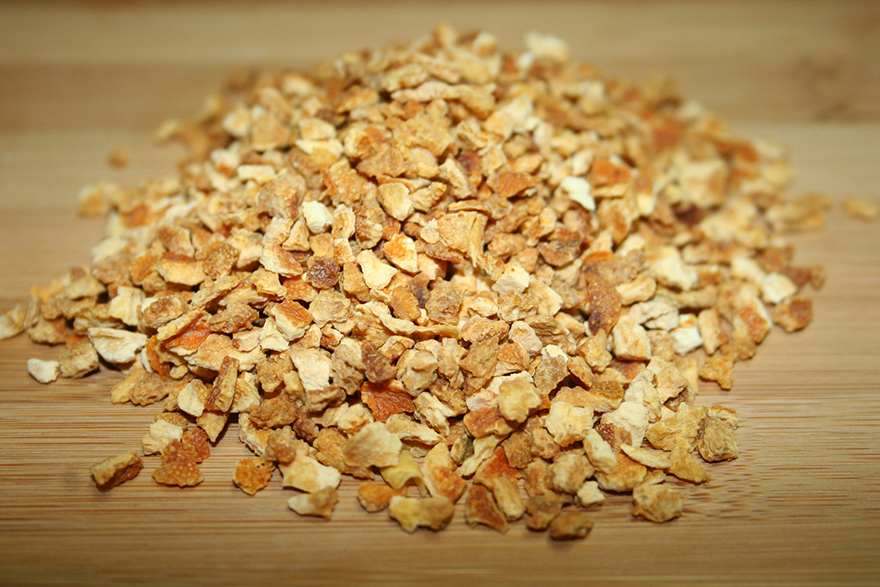Sweet Orange Peel Essential Oil
Cultivated in tropical regions of the world, the oil found in the peel of the sweet orange releases an aromatic essence when extracted. While these and other fragrant fruit rinds were used by ancient cultures for their healing powers, in recent decades, Western interest in the therapeutic effects of essential oils has been growing.
History
The use of the oil from the sweet orange peel is not something new. Sweet oranges are known to have grown in China as early as 2400 BC; therefore, their medicinal uses and value have a long history. From ancient times, the Chinese used orange essential oil to treat a broad range of common illnesses. Chinese medicine today continues to use sweet orange essential oil as a natural treatment for all kinds of physical and mental health problems.
Although orange trees are native to China, they are cultivated in a number of other countries including the U.S., Italy, and Brazil. Used for centuries to aid in healthy digestion and eliminate toxins, today many individuals use sweet orange oil as an anti-aging oil to give the skin a more youthful appearance.
How the Oil Is Extracted
While essential oils typically are extracted from their root products through the use of steam distillation, expressing oil from orange peels requires the use of cold pressing. Cold pressing refers to a process that extracts oil from the rinds of oranges at room temperature. Applying heat as a method for obtaining the oil from the peel of a citrus fruit like a sweet orange yields a poorer quality oil that is less therapeutic.
Since the oil is in the orange rind, extracting it has never been an easy task. Until the late 1700s, the oil was pressed out of the orange peels by hand and then wiped up with a natural sea sponge before wringing it out. This method took a long time to collect large quantities of the oil, which made it expensive.
It wasn’t until the early 20th century that mechanical means were used to extract the oil. At first, the orange peels were still separated by hand before being put through machines to remove the oil. Eventually, producers used the pellatrice method, which made it possible to extract the oil without the need to peel the oranges by hand. Although this is a method of machine processing rather than hand pressing, it produces essential oil similar in quality to the sponge method.
Skin Benefits
Sweet orange essential oil moisturizes and brightens the skin, making it appear healthier. Known for its anti-aging properties, the vitamin C in sweet orange oil helps restore collagen and make skin more elastic.
Topical application of the oil rejuvenates the skin by increasing circulation to the skin’s surface. Use of the oil to exfoliate the skin makes skin less dry and creates a healthy glow. The oil also acts as an antibacterial agent that helps heal lesions and other skin problems.
Other Healthful Benefits
Healthful benefits of sweet orange peel essential oil include using it for its anti-inflammatory, antidepressant, and antiseptic properties. In addition, some studies suggest that foods rich in vitamin C may boost immunity, help heal wounds, and lower rates of skin cancer.
Aromatherapy is one way to deliver the healing benefits of essential oils. Sweet orange oil may produce an improved state of mind, as breathing in the oil’s aroma can help individuals feel less anxious and more relaxed. Studies suggest (2) that aromatherapy may also be beneficial for improving cognitive function, particularly in individuals with Alzheimer’s disease.
The easiest and quickest method is to put a few drops of the oil on your hand and then inhale the scent. Another method is to place several drops in warm bath water before soaking in the tub.
Researchers theorize (3) that when a person inhales the fragrance of an essential oil, smell receptors in the nose send chemical messages to the brain’s limbic system. The limbic system affects a person’s moods and controls emotions such as happiness, fear, and anger. Inhaling the fragrance slowly can also settle an upset stomach.

